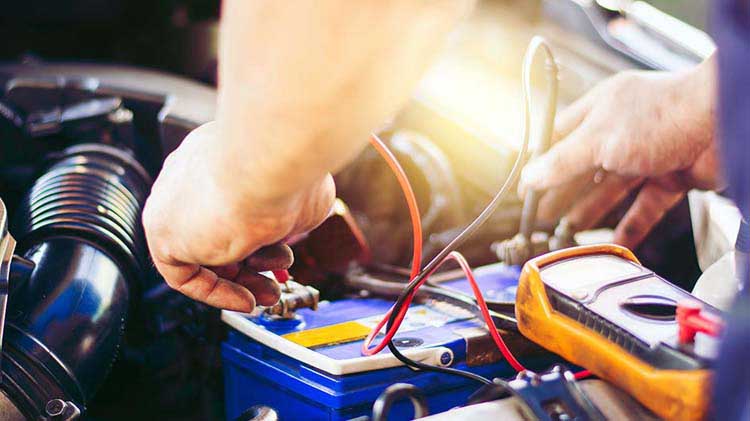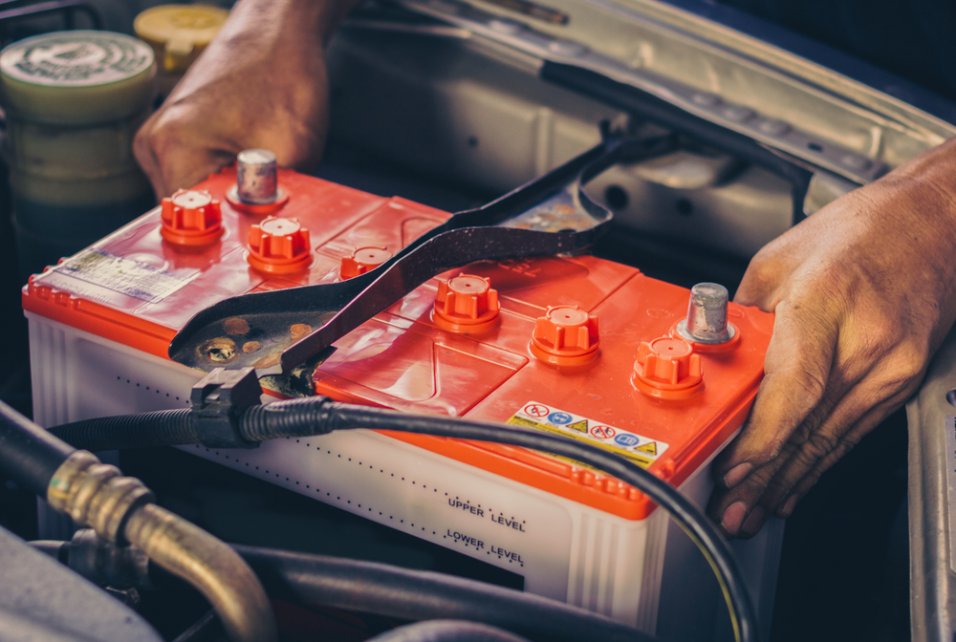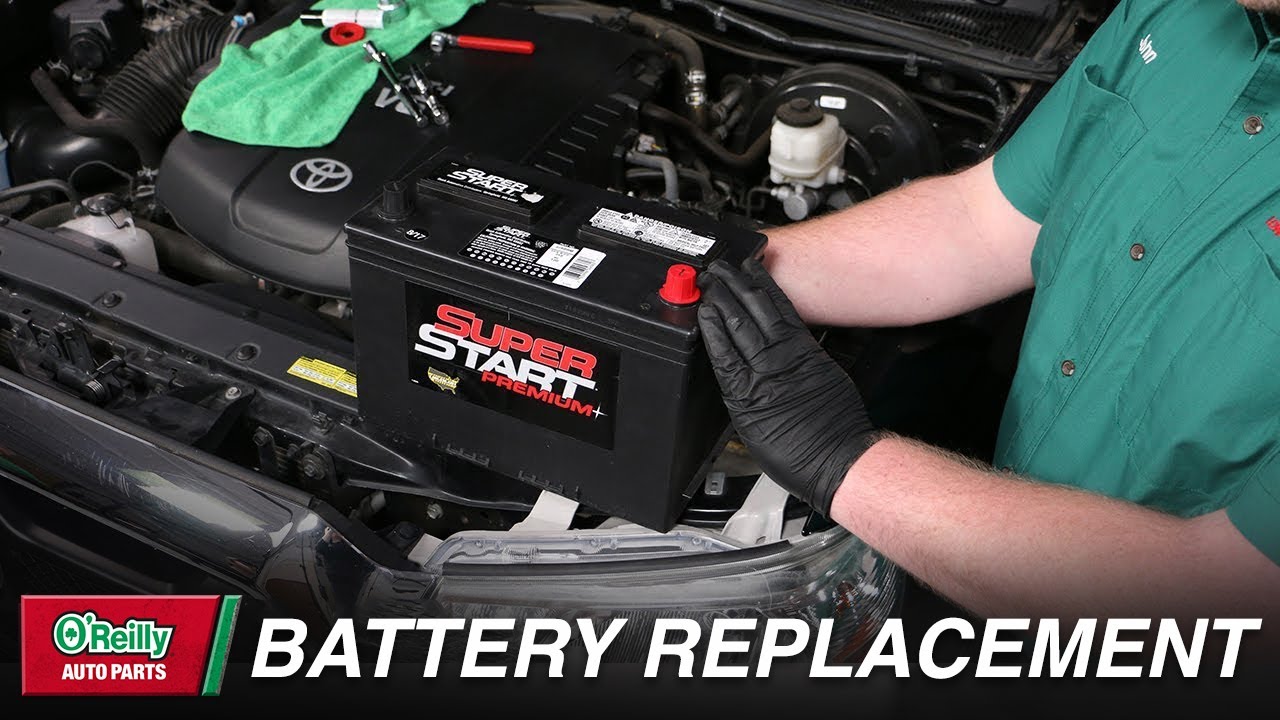As electric vehicles (EVs) continue to rise in popularity, Battery car replacement involves selecting a compatible unit and installing it properly. It is a routine maintenance task essential for vehicle performance.
Ensuring your vehicle always runs at its optimum level requires regular maintenance, and one of the most critical components needing attention is the car battery. This small yet powerful item is the heart of your car’s electrical system, storing the energy needed to start your engine and power your car’s electronics.
A failing battery can lead to a host of problems, from trouble starting the engine to poor electrical performance. Knowing when to replace your car battery and choosing the right one is vital for keeping your car reliable and ready to hit the road. With technology advancing, options for battery types have expanded, making it more important than ever to understand your vehicle’s specific needs for a proper battery replacement.

Credit: www.statefarm.com
The Importance Of Battery Health In Electric Vehicles
The health of a battery in electric vehicles (EVs) is crucial. It affects how far the car can go. It also affects how well the car works. Keeping the battery in good shape means a better driving experience.
Signs Of A Deteriorating Battery
Several signs can show a battery is getting old:
- Shorter Range: The car doesn’t go as far as before.
- Slow Charging: It takes longer to charge the battery.
- Unexpected Power Loss: The car loses power suddenly.
- Dashboard Warnings: Warning lights appear on the dashboard.
Impact On Vehicle Performance
A bad battery affects the car’s performance. Here’s how:
- Reduced Speed: The car doesn’t go as fast.
- Less Power: The car struggles to climb hills.
- Poor Acceleration: The car is slow to speed up.
Keeping the battery healthy means a better drive and saves money.
Choosing The Right Replacement Battery
When a battery car needs a new battery, the choice matters. A right replacement battery ensures a smooth ride. It maintains the car’s performance. The following sections guide on how to choose well.
Types Of Ev Batteries
Electric vehicles (EVs) use different batteries. Each type has unique benefits. Let’s explore the common ones:
- Lithium-ion Batteries: These are popular. They are light and efficient. They also have a high energy density.
- Nickel-Metal Hydride Batteries: These are reliable. They last long. But, they are heavier than lithium-ion.
- Lead-Acid Batteries: These are the oldest type. They are cheaper but have a shorter life span.
Compatibility And Performance Criteria
Selecting the right battery involves checking compatibility and performance. Below are key points to consider:
| Criteria | Description |
|---|---|
| Size and Fit | Must match the car’s specifications. |
| Capacity | Should meet or exceed original specs. |
| Power Output | Impacts acceleration and climbing ability. |
| Charging Time | Shorter is better for convenience. |
| Life Cycle | Longer life means better value. |
| Warranty | Longer warranty offers peace of mind. |
Match the new battery with the car’s model. Ensure it supports the vehicle’s features. Check the manufacturer’s guidelines. This avoids performance issues. Remember, a right choice extends the vehicle’s life.
The Replacement Process: What To Expect
Replacing a car battery is crucial for a smooth ride. Know what to expect with this guide.
Step-by-step Guide
- Turn off your car.
- Locate the battery.
- Remove the terminal clamps.
- Take out the old battery.
- Clean the battery tray.
- Put in the new battery.
- Attach the terminal clamps.
- Check the connections.
- Start your car to test the battery.
Professional Vs. Diy Replacement
| Professional | DIY |
|---|---|
| Experts handle the process. | You manage the replacement. |
| Tools and disposal included. | Must have your own tools. |
| Usually offers a warranty. | No warranty on your work. |
| Costs more than DIY. | Saves money but takes time. |
Cost Considerations And Savings
Thinking about changing to a battery car? Let’s talk money.
Initial Investment
First, buying a battery car costs more than a regular car.
Why? Because the technology is new and batteries are expensive.
But, don’t worry. Prices are falling every year. Soon, they’ll be cheaper.
Here’s a simple table comparing costs:
| Type of Car | Initial Cost |
|---|---|
| Battery Car | $30,000 |
| Regular Car | $20,000 |
Long-term Savings And Incentives
Now, let’s talk about how you save money later.
- No gas needed. Electricity is cheaper than gas.
- Less maintenance. Battery cars have fewer parts to fix.
Plus, the government gives you money back for choosing green.
- Tax rebates.
- Special discounts on parking and tolls.
Adding it all up, you save a lot over time.
Maximizing Battery Life: Tips And Tricks
Want a longer life for your car battery? Follow these tips. You can keep your battery going strong. Let’s explore how to do it right.
Proper Charging Habits
- Charge your battery fully each time.
- Avoid letting it drop to 0% before charging.
- Unplug once it hits 100% to prevent stress.
Temperature Management
Extreme heat or cold is bad for batteries. Keep your car in a garage to protect it. Use insulation covers if needed. Check the temperature often.
Environmental Impact Of Battery Disposal
Battery disposal affects our planet. Old batteries harm the environment. They contain toxic substances. These substances can pollute soil and water. Proper disposal is necessary. Recycling helps reduce this impact.
Recycling Programs
Many areas offer battery recycling. These programs prevent harmful chemicals from entering the environment. They recover valuable materials. This reduces the need for new resources.
- Find local battery recycling centers
- Drop off used batteries safely
- Support businesses that recycle batteries
Sustainable Practices
Sustainable practices help protect nature. Companies are now more eco-friendly. They use better materials in batteries. This makes recycling easier.
- Choose batteries with green technology
- Use rechargeable batteries to reduce waste
- Support brands with a commitment to sustainability
Future Innovations In Electric Vehicle Batteries
The future shines bright for electric vehicle (EV) batteries. New ideas and technologies promise to make them better and last longer. Let’s explore what’s on the horizon.
Emerging Technologies
Scientists and engineers work hard to find new ways to power EVs. They look at different materials and designs. Their goal is to make batteries charge faster and hold more power.
- Solid-state batteries: These could replace liquid ones. They are safer and can store more energy.
- Graphene batteries: Graphene makes batteries lighter and charge quicker.
- Lithium-sulfur batteries: They offer a higher energy density. This means cars can go longer distances without a charge.
Potential For Enhanced Longevity
Battery life is key for EV owners. No one likes to replace batteries often. Future innovations aim to solve this.
New tech may double or triple battery life. Imagine charging your car once and traveling twice as far. Or a battery that lasts as long as the car does. This future is possible.
- Advanced cooling systems keep batteries at the best temperature. This slows down aging.
- Smart charging strategies help batteries stay healthy for longer. They avoid damage from charging too fast or too much.
- New materials reduce wear and tear. Batteries can take more charge cycles without losing capacity.

Credit: www.ymfcarparts.co.uk
Battery Car Replacement Prices & Cost Estimates
As electric vehicles (EVs) continue to rise in popularity, understanding the costs associated with battery replacement becomes essential for both current and prospective EV owners.
Factors Influencing Battery Replacement Costs
1. Type of Vehicle
The type of electric vehicle significantly impacts the cost of battery replacement. Luxury EVs, such as Tesla models, generally have higher replacement costs compared to more affordable brands like Nissan or Chevrolet.
2. Battery Size and Capacity
The size and capacity of the battery directly affect the replacement cost. Larger batteries with higher capacities offer more range but come with a steeper price tag. For instance, a 100 kWh battery pack will cost more than a 50 kWh pack.
3. Manufacturer and Model
Different manufacturers have varying pricing strategies and technologies, influencing the cost. For example, a Nissan Leaf battery replacement might be more affordable compared to a BMW i3 battery.
4. Warranty Coverage
Many EV manufacturers offer battery warranties ranging from 8 to 10 years or a specific mileage. If your battery fails within this period, the replacement cost might be partially or fully covered.
Average Battery Replacement Costs by Popular EV Models
Tesla Model S
- Battery Cost: $12,000 – $15,000
- Labor Cost: $1,000 – $2,000
- Total Estimated Cost: $13,000 – $17,000
Nissan Leaf
- Battery Cost: $5,500 – $7,500
- Labor Cost: $1,000 – $1,500
- Total Estimated Cost: $6,500 – $9,000
Chevrolet Bolt
- Battery Cost: $8,000 – $10,000
- Labor Cost: $1,200 – $1,800
- Total Estimated Cost: $9,200 – $11,800
BMW i3
- Battery Cost: $13,000 – $16,000
- Labor Cost: $1,500 – $2,000
- Total Estimated Cost: $14,500 – $18,000
Ways to Reduce Battery Replacement Costs
1. Regular Maintenance
Proper maintenance can extend the lifespan of your EV battery, delaying the need for replacement.
2. Warranty Utilization
Check if your battery is still under warranty before paying out-of-pocket for a replacement. Many warranties cover battery replacement or significant repairs.
3. onsider Used or Refurbished Batteries
Some manufacturers offer recycling programs where you can trade in your old battery for a discount on a new one. This can significantly lower your replacement cost.
4. Explore Recycling Programs
Some manufacturers offer recycling programs where you can trade in your old battery for a discount on a new one. This can significantly lower your replacement cost.
5. Shop Around
Get quotes from multiple service providers, including independent mechanics and authorized dealers, to find the best price for your battery replacement.
Understanding battery replacement prices and cost estimates is crucial for managing the long-term expenses of owning an electric vehicle. By considering factors like the type of vehicle, battery size, manufacturer, and warranty coverage, you can better anticipate the costs involved.
Credit: www.businessinsider.com
Frequently Asked Questions
How Much Should A Car Battery Replacement Be?
A car battery replacement typically costs between $50 and $200, depending on the battery’s quality and vehicle model.
Will Autozone Install A Battery?
Yes, AutoZone offers free battery installation on most vehicles at its locations, provided the battery is purchased from their store.
Can I Replace My Car Battery Myself?
Yes, you can replace your car battery yourself. Ensure you follow the vehicle manual, disconnect the terminals safely, and dispose of the old battery properly. Always wear protective gear and check for any corrosion.
How Often Should You Replace Car Battery?
Typically, you should replace your car battery every 3-5 years, depending on usage and climate. Regular checks can help identify when a change is needed.
Conclusion
Replacing your car’s battery is a straightforward yet crucial task. It ensures your vehicle remains reliable and efficient. Remember, regular checks can prevent unexpected failures. Choose the right battery and consider professional installation for best results. Safe driving starts with a dependable power source.
